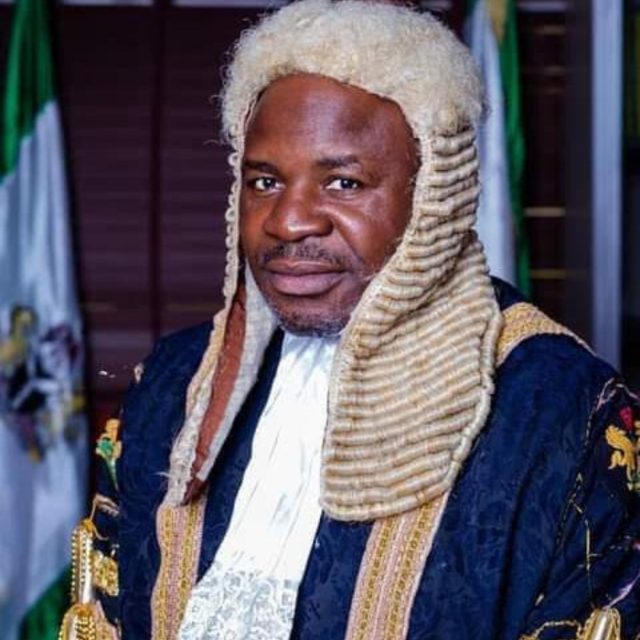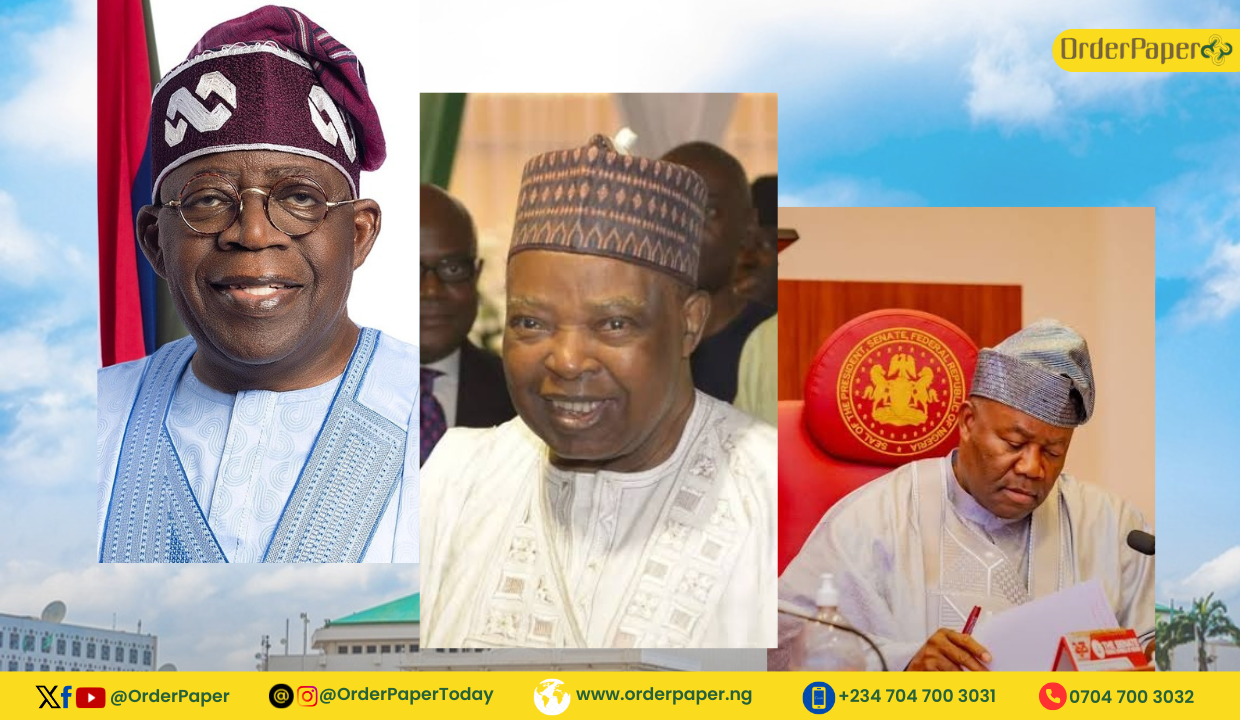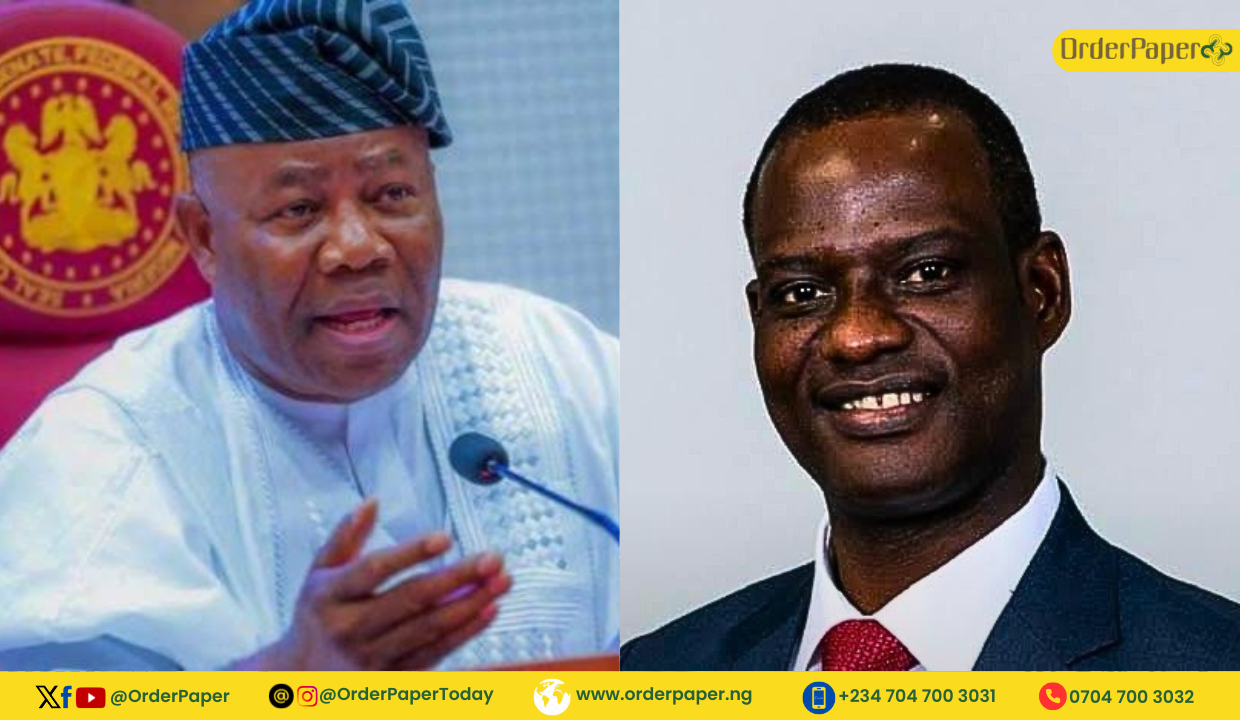Across the length and breadth of Nigeria, here are the biggest stories around Nigeria’s legislators and the institution of parliament you mustn’t miss this Thursday:

Taraba Speaker resigns after ‘offensive appeal’ for PASAN allowances
The Taraba State House of Assembly has elected Kizito Bonzina (APC, Zing), as its new speaker, following the resignation of the former presiding officer, Joseph Kunini.
As reported by Premium Times, sources allege that the resignation came ahead of an impeachment plot against Kunini, by Governor Darius Ishaku, who was reportedly displeased with the ex-speaker’s plea on Monday, for government to settle the seven-year outstanding allowances of the Parliamentary Staff Association of Nigeria (PASAN) in Taraba State.
.Kunini, a professor, was elected Speaker of the 24-member assembly in 2019 following the resignation of the then speaker, Abel Peter, who had disagreements with the state governor, Darius Ishaku, on several occasions.
READ ALSO: Ishaku signs last budget as Governor into law
Service-Wide Vote: Senate wants Aregbesola to justify N700m Election Duty Fund
The Senate, on Wednesday, gave the Ministry of Interior twenty-four hours to justify N700m collected from Service Wide Votes for the monitoring of Ondo and Edo governorship elections.
According to Authority to Incur Expenditure, N400m and N300m were released to the ministry headed by Rauf Aregbesola for “logistic and operational support for Ondo and Edo state governorship elections.”
In response, the Permanent Secretary of the Ministry, Dr Shuaib Belgore, told the Senate that the Nigerian Civil Defence Corps would account for the N700m.
Reps want FG to include anti-corruption awareness in basic school curriculum
The House of Representatives has urged the federal government to review the curricula of primary and secondary schools in the country with the aim of integrating anti-corruption awareness courses and programmes.
This resolution followed a motion moved by the Speaker, Femi Gbajabiamila (APC, Lagos), Aishatu Dukku (APC, Gombe) and two others during plenary on Wednesday.
Rep Dukku, while moving the motion, said that anti-corruption fights by successive governments have not been able to address the scourge of corruption, adding that the situation demands urgent and drastic steps to end the menace in the country
Vote Buying: ICPC pledges support for INEC in fight against scourge
The Independent Corrupt Practices and Other Related Offences Commission (ICPC) has pledged its support for the Independent National Electoral Commission (INEC) in its quest to curb the menace of vote-buying in the 2023 general election.
ICPC Chairman, Prof. Bolaji Owasanoye, who made the pledge at a Stakeholders’ Summit on addressing the influence of money on the 2023 general election, organised by INEC in Abuja, promised to assist INEC with visual aids to document cases of vote-buying and monitor compliance with the extant provisions of the Electoral Act.
“As you know, elections may be extremely volatile and emotional, so the recording of the process of what we find will enable us follow up activities as we had in Ekiti, Anambra and Osun elections,” Owasanoye said.
2023: Concerned Nigerian drags Rep Doguwa to court over ‘threat’ against voters
A concerned Nigerian, Oseyili Anenih, has filed a suit against the Leader of the House of Representatives, Alhassan Ado Garba (Doguwa), for threatening violence against Nigerian electorates in the forthcoming 2023 general elections.
“On the day of election, wallahi, a person should either vote for APC or you will be dealt with. The day of election you either vote for APC, or you will be dealt with. When I say it, you should answer me: in Doguwa, either you vote for APC, or you will be dealt with,” the lawmaker is quoted as saying in Hausa language to the hearing of the public and electorate “on or about 5th day of December 2022, in Kano State.”
In the processes filed before a Federal High Court in Abuja by Anenih (complainant), he averred that Doguwa confirmed making such statement in his recent interview on national television, which is against the provisions of Section 93 (1) of the Electoral Act, 2022 and punishable under Section 93 (2)(b) of the same Electoral Act.



